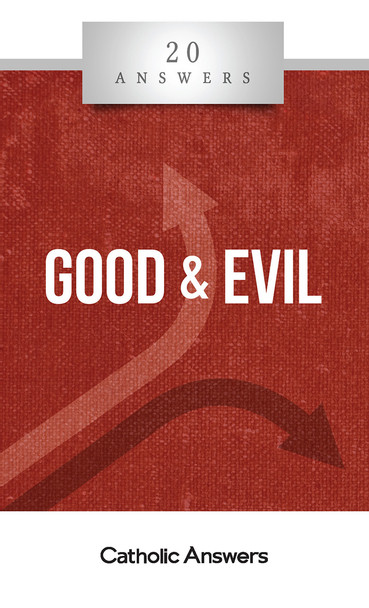There is a “joke” that goes a missionary was evangelizing an indigenous native and the native asks ‘If I did not know about God and sin, would I go to hell?’ Priest: ‘No, not if you did not know.’ Native: ‘Then why did you tell me?’
Singulari Quadam
“2. Accordingly, We first of all declare that all Catholics have a sacred and inviolable duty, both in private and public life, to obey and firmly adhere to and fearlessly profess the principles of Christian truth enunciated by the teaching office of the Catholic Church…
3. These are fundamental principles: No matter what the Christian does, even in the realm of temporal goods, he cannot ignore the supernatural good. Rather, according to the dictates of Christian philosophy, he must order all things to the ultimate end, namely, the Highest Good. All his actions, insofar as they are morally either good or bad (that is to say, whether they agree or disagree with the natural and divine law), are subject to the judgment and judicial office of the Church.”
Summa Theologica Ia IIae q.76 a.2
“Extra ecclesiam nulla salus”
CCC 846 How are we to understand this affirmation, often repeated by the Church Fathers?335 Re-formulated positively, it means that all salvation comes from Christ the Head through the Church which is his Body:
Basing itself on Scripture and Tradition, the Council teaches that the Church, a pilgrim now on earth, is necessary for salvation: the one Christ is the mediator and the way of salvation; He is present to us in his body which is the Church.
He Himself explicitly asserted the necessity of faith and Baptism, and thereby affirmed at the same time the necessity of the Church which men enter through Baptism as through a door.
Hence they could not be saved who, knowing that the Catholic Church was founded as necessary by God through Christ, would refuse either to enter it or to remain in it.336

-by Joseph Heschmeyer, a former lawyer and seminarian, he blogs at Shameless Popery.
“In the beginning of the book of Isaiah, God declares, “Sons have I reared and brought up, but they have rebelled against me” (1:2). It’s a succinct description of the nature of sin: having seen the goodness of God, we have turned against Him in rebellion. But the person who does something wrong innocently and ignorantly isn’t a rebel; he’s just making a mistake. This idea—that for an evil to be a sin, it has to be chosen knowingly—is present from the first pages of Scripture. It’s not for nothing that the forbidden fruit in the Garden of Eden is from the “tree of the knowledge of good and evil” (Gen. 2:9). Prior to this kind of moral knowledge, you may act poorly, but it’s not sinful, just as it’s not sinful when a baby hits you and pulls your hair.
Of course, no one is totally ignorant. For instance, “no one is deemed to be ignorant of the principles of the moral law, which are written in the conscience of every man” (CCC 1860). You can’t murder your neighbor and pretend you had never heard that murder was wrong. But “ignorance of Christ and his gospel” (CCC 1792) certainly exists. How shall such people be judged? Jesus lays out the basic principle in Luke 12:48: “Every one to whom much is given, of him will much be required; and of him to whom men commit much they will demand the more.” Everyone has been given something (at least the principles of moral law), and we will be judged based on what we know or should have known, not on what we didn’t know.
Knowing the demands of the gospel means that you can’t claim “ignorance” of them on the Last Day. Of course, we can’t willfully stay ignorant of the gospel, since that’s the kind of “feigned ignorance” that actually makes our sin worse. But can’t we at least not preach the gospel so that other people can live and die in invincible ignorance?
Then-cardinal Joseph Ratzinger described his shock at hearing “a senior colleague” who “expressed the opinion that one should actually be grateful to God that he allows there to be so many unbelievers in good conscience. For if their eyes were opened and they became believers, they would not be capable, in this world of ours, of bearing the burden of faith with all its moral obligations. But as it is, since they can go another way in good conscience, they can still reach salvation.”
It’s not an exaggeration to say that this error is literally the anti-gospel. It treats the gospel (which literally means “good news”) as bad news from which we need to protect people, rather than good news that we need to share with the world. Logically, “faith would not make salvation easier but harder.” As the future Pope Benedict XVI observed, “in the last few decades, notions of this sort have discernibly crippled the disposition to evangelize. The one who sees the faith as a heavy burden or as a moral imposition is unable to invite others to believe.”
Where’s the actual error in reasoning in this anti-gospel? It’s in the assumption that those who have not heard of Jesus will live and die in invincible ignorance. Remember, “no one is deemed to be ignorant of the principles of the moral law, which are written in the conscience of every man” (CCC 1860). There are basic moral truths, including truths about the existence of God, that are knowable to everyone, even the desert islander who has never heard of Christianity or the Bible. And it would be dangerously naïve to assume that everyone has responded to even these limited glimpses of God’s revelation sufficiently to be saved. Contrast this naïve optimism with St. Paul’s description of paganism in Romans 1:18-21:
For the wrath of God is revealed from heaven against all ungodliness and wickedness of men who by their wickedness suppress the truth. For what can be known about God is plain to them, because God has shown it to them. Ever since the creation of the world his invisible nature, namely, His eternal power and deity, has been clearly perceived in the things that have been made. So they are without excuse; for although they knew God they did not honor Him as God or give thanks to Him, but they became futile in their thinking and their senseless minds were darkened.
Paul knows that the pagans don’t know everything. They probably don’t know about the Torah or the moral law, or that there’s been a recent preacher in Galilee by the name of Jesus of Nazareth. But they do know (or at least should know) about certain truths about both morality and God’s “eternal power and deity.” And they responded to them, in large part, by “suppress[ing] the truth,” and choosing darkness over light. In short, the desert islanders who have never heard of Christ are in the same spot as the rest of us: God reveals truth to us, and we rebel and choose sin over him. It’s why Paul goes on to say that “all who have sinned without the Law will also perish without the Law, and all who have sinned under the Law will be judged by the Law” and that “there is no distinction; since all have sinned and fall short of the glory of God” (Rom. 2:12, 3:22-23).
Everyone you meet—assuming he’s over the age of reason, and not counting serious mental disabilities and other extraordinary mitigating factors—is a sinner like you. Regardless of how much or how little God has revealed to him, he has chosen sin instead of God. If he has any self-awareness, he may even know this. To such people, the gospel isn’t a new burden. It’s the good news that their rebellion from God isn’t the end of the story and that a remedy exists, “through the redemption which is in Christ Jesus” (Rom. 3:24). The anti-gospel, rather than preserving people in a blissful state of innocent ignorance, rather damns them by leaving them with only their sin and not the cure.”
Love & truth,
Matthew

